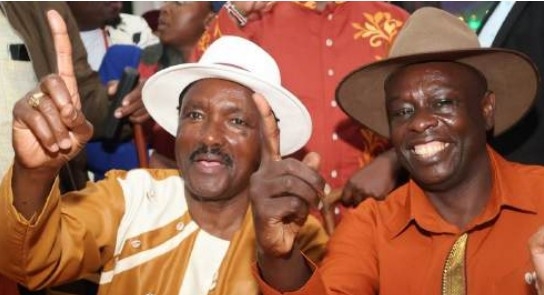An upward adjustment on a number of levies coupled with a weak shilling, continues to deny consumers in Kenya the full benefits of lower global fuel prices.
The Energy and Petroleum Regulatory Authority (EPRA) has made increments in four levies, albeit with small margins, as the government seeks to raise more revenue from petroleum products.
The Import Declaration Fee levied on super petrol has gone up to Sh2.60 per litre from Sh2.58, Railway Development Levy up to Sh1.56 from Sh1.55, Petroleum Regulatory Levy is now at Sh0.75 per litre from Sh0.25 while the Merchant Shipping Levy has increased to Sh0.04 per litre, from Sh0.03.
Together with excise duty, Road Maintenance Levy, Petroleum Development Levy and VAT, the government is now taking Sh78.76 per litre of petrol as taxes, up from Sh78.36.
On diesel and kerosene, EPRA has increased the Railway Development Levy at the same rates as petrol, while Import Declaration Fees and Railway Development Levy on kerosene have increased to Sh2.86 from Sh2.81, and Sh1.71 per litre from Sh1.69, respectively.
Sh67.06 and Sh61.78 are going to government as taxes for every litre of the two respective products, as consumers pay up to nine different taxes and levies.
In the latest pricing cycle, EPRA puts the product cost at Sh110 (petrol), Sh121.64 (diesel) and Sh117.92 (diesel) with taxes, distribution costs and Oil Marketing Company’s margins adding up to the final pump prices, where a litre of petrol continues to retail above the Sh200 mark.
Costs on pipeline and depot losses have also been adjusted upwards.
While EPRA has reduced prices for the third time in a row, since December, the weak shilling against the US dollar has also continued to deny Kenyans cheaper products, even as global prices dipped.
EPRA quotes the shilling at an average Sh164.42 to the dollar in January, compared to December's Sh158.81.
Murban crude touched a four-month low of $83.32 per barrel in January, having been a drop from $91 per barrel in December, EPRA data shows.
Crude prices on the OPEC basket averaged $78.21 per barrel in January, official data shows, and slightly dropped to $77.47 per barrel in the first week of February.
Brent prices touched a low of $75.91 per barrel in the first week of January, the lowest mark since June last year and with Kenya’s pump prices being pegged on the previous month’s imports, it means consumers could have seen a bigger drop this month if EPRA was to pass the full benefits.
“In the period under review, the maximum allowed petroleum pump price for super petrol, diesel and kerosene decrease by Sh1 per litre respectively,” EPRA director general Daniel Kiptoo said in a statement on Tuesday, as the regulator set the prices for the February-March cycle.
The marginal price drop comes as the average landed cost of imported super petrol decreased by 1.71 per cent from $677.78 per cubic metre in December 2023 to $666.16 in January.
Diesel decreased by 3.1 per cent from $751.15 per cubic metre to $728.03 while kerosene went down by 1.17 per cent from $727 to $718.15 per cubic metre.
Petrol, diesel and kerosene are currently retailing at Sh206.36, Sh195.47 and Sh193.23 per litre, in Nairobi, respectively.
“ The price of diesel has been cross-subsidised with that of super petrol while kerosene has been fully stabilised. OMCs will be compensated for the under recovery of costs from the Petroleum Development Levy fund,” Kiptoo indicated.
Last year, EPRA sought to increase levies to boost its revenues, with the Statute Law (Miscellaneous Amendments) Bill 2023 proposing to amend the Energy Act of 2019, by doubling EPRA levy to a maximum of one per cent.
The move meant an increase in fuel and electricity prices.
The regulator has so far increased its earnings from the petroleum levies to above Sh1.3 billion from Sh1.1 billion in 2020 and Sh1.2 billion in the financial year ended June 2021.
Meanwhile, transport costs and commodity prices are expected to remain high as the fuel component plays out, with transporters showing no signs of reducing fares and freight charges.
In Nairobi, fares on key routes remain high having increased by up to Sh30 on some routes, with peak hours seeing some operators charge double.
While the Matatu Owners Association acknowledges the fuel price drops, it says members are still struggling with expensive spare parts as a result of costly imports, mainly on the dollar-shilling factor.
“To balance this, our members are charging minimal fares during off-peak, where for instance from town (Nairobi) to Githurai is Sh20. We are however talking to our members to see how we can bring down fares and pass benefits to mwananchi,” MOA president Albert Karakacha told the Star on the telephone.












